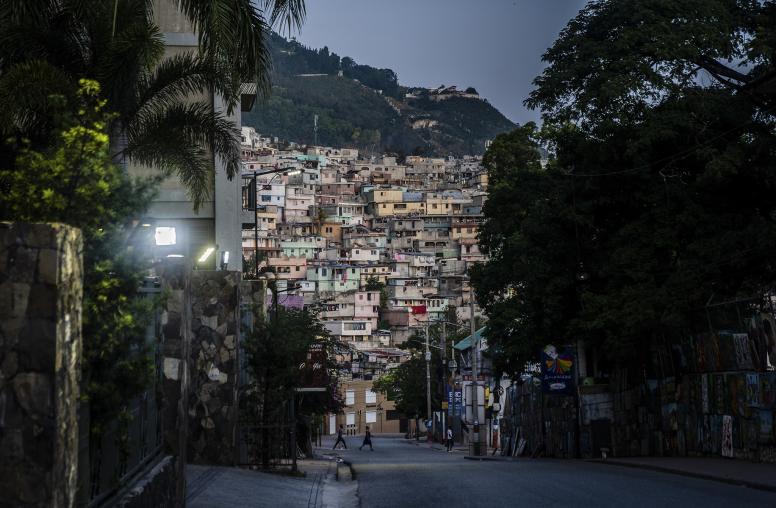Mobilizing Latin American Citizens Against Corruption
Lessons for Guatemala on Restorative Justice, Collective Action and Citizen Participation
Please note: This event is presented in three parts over two days. Please check the agenda below for details.
Curbing corruption in Latin America requires more than just top-down institutional reforms — it requires the active engagement of citizens across the region. USIP will hold three webcasts exploring how to empower citizens to hold local officials accountable, how to use restorative mechanisms to repair the harms suffered by vulnerable communities, and how to mobilize the private sector against the unfair practices that stifle competition. International experts will share lessons learned around the world and discuss replicating these initiatives in Guatemala, where the government has made fighting systemic corruption a national priority.
English
Spanish
Agenda
Tuesday, October 15
2:00pm – 3:00pm | Supporting Citizen Action for Accountable Governance
This session will explore initiatives to increase government transparency while mobilizing citizens to become anti-corruption champions. It will bring together activists and experts to discuss local initiatives — including information campaigns, coalition building and participatory budgeting.
Watch in English Ver en español
Panelists
- Cheri-Leigh Erasmus
Co-CEO and Chief Learning and Agility Officer, Accountability Lab - Mariana Perales
Director, Hagámoslo Bien (Monterrey, México) - Alexander Reina Otero
Director, Instituto Distrital de la Participación y Acción Comunal (Bogotá, Colombia) - Lucila Del Aguila, moderator
Senior Program Officer, U.S. Institute of Peace
Wednesday, October 16
9:00am – 10:00am | Can Restorative Justice Address Corruption in Guatemala?
This session will examine whether and how restorative justice mechanisms can be used to hold corrupt actors accountable while repairing the harm caused to vulnerable communities. Legal and human rights experts will discuss the theory and practice of restorative justice, the challenges of applying these mechanisms to economic crimes, the use of negotiation and dialogue to foster reconciliation, and the provision of remedies for the victims of corruption — especially poor communities deprived of vital public services.
Watch in English Ver en español
Panelists
- Fanie Du Toit
Former Executive Director, Institute for Justice and Reconciliation (Cape Town, South Africa) - Edgar Gutierrez Aiza
Doctoral Candidate, Oxford University - Jennifer Llewellyn
Professor of Law and Director of the Restorative Research, Innovation and Education Lab, Schulich School of Law, Dalhousie University - Gabriel Rojas-Andrade
Director for Restorative Justice, Colombia, U.S. Institute of Peace - Carl Stauffer, moderator
Senior Expert, Reconciliation, U.S. Institute of Peace
2:00pm – 3:00pm | The Private Sector Case for Collective Action Against Fraud
This session, co-sponsored by Center for International Private Enterprise, will explore how businesses can join forces to fight shady practices that hinder fair competition and undermine development. The conversation will focus on opportunities to curb corruption in Guatemala through the formation of broad alliances not only within the business community, but also with civil society activists and reform-minded public institutions.
Watch in English Ver en español
Panelists
- Mike Denly
Assistant Professor, Bush School of Government and Public Service, Texas A&M University; Executive Director, Lab for Economic Development Research - Welby Leaman
Senior Director for Global Government Affairs, Walmart - Tanya Khavanska
Head of Business Integrity Programme, Anti-Corruption Network for Eastern Europe and Central Asia - Lisa Kristin Miller
Head, Integrity Compliance, Integrity Vice Presidency, World Bank Group - Frank Brown, moderator
Director, Anti-Corruption and Governance Center, Center for International Private Enterprise


